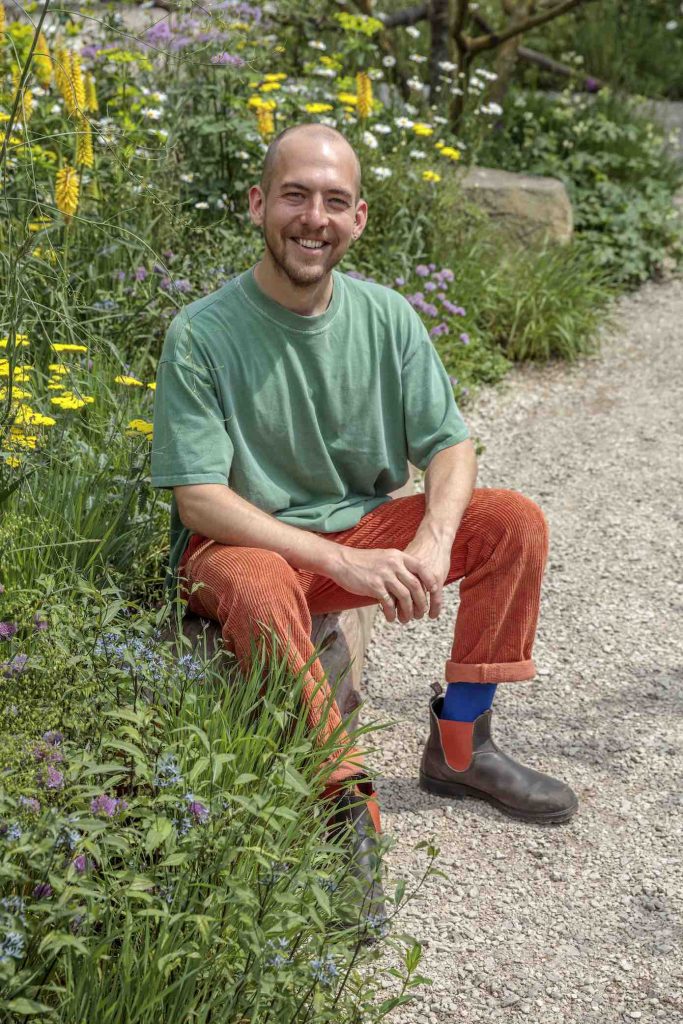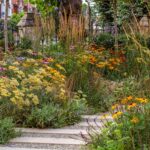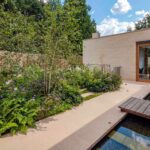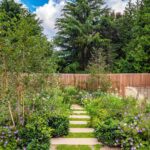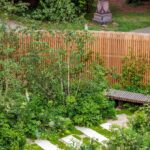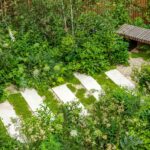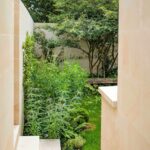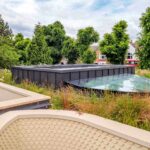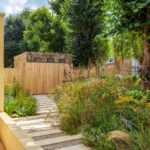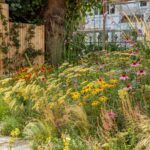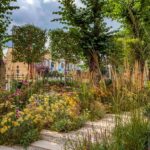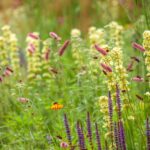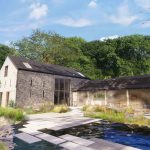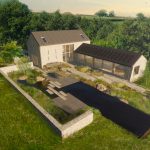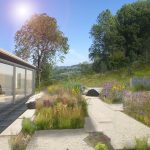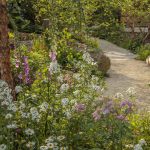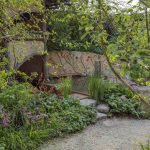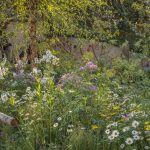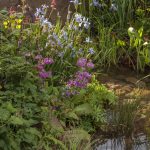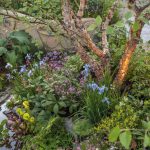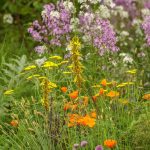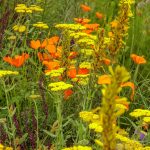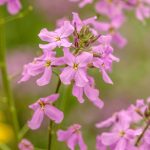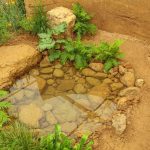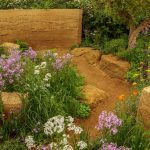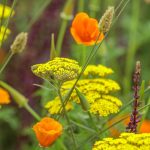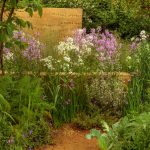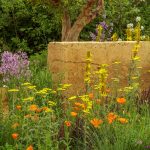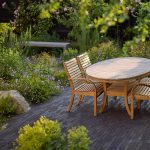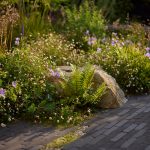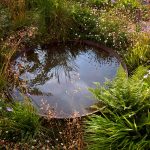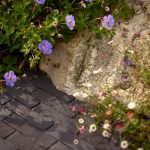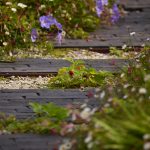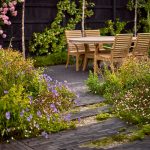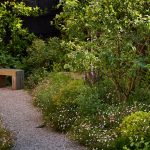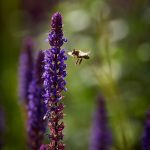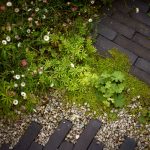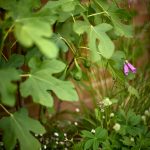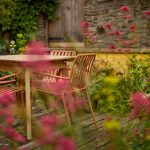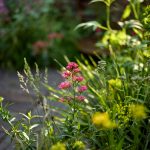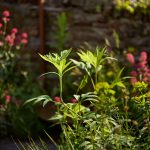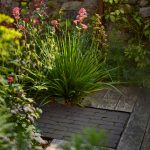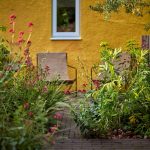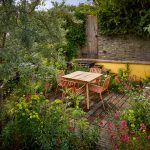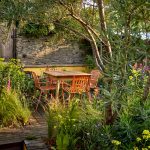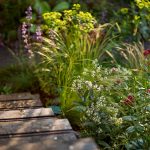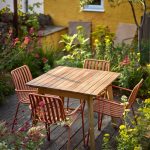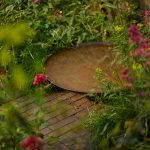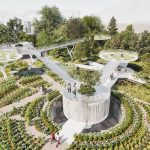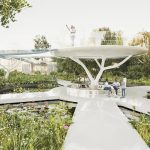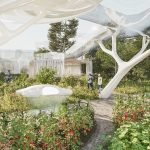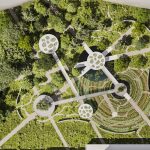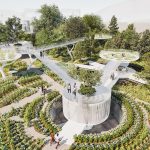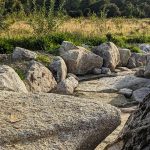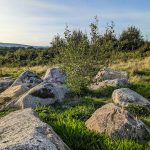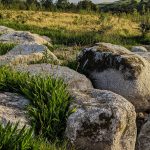Harry Holding
Growing up in a family of horticulturalists I’ve had my hands in the soil from a young age and developed a deep love and connection with the natural world. After working in Australia and across the UK for other designers, landscape firms and nurseries, in 2015 I set up a design and maintenance company based in London. In 2018 I was awarded a scholarship to study at the prestigious London College of Garden Design, Kew Gardens, graduating with a distinction and the college award for Top Student of the year. I have recently been selected for the ’30 Under 30′ award by Pro Landscaper magazine – 30 ‘rising stars’ within the industry under the age of 30. I’m a Pre-Registered member of the Society of Garden Designers and our work has recently featured on Channel 4’s Grand Designs 2021 series.
Biography:
Harry Holding Garden Design: a forward thinking, environmentally conscious design & maintenance company. Based in London, we work across the UK and internationally. (Instagram: harryholdingdesign)
As a studio, we develop strong designs which use local, sustainable materials and innovative planting schemes to create bold, immersive and enchanting spaces. A signature blend of the contemporary with the natural delivers a juxtaposition between built form and naturalistic planting, crafting gardens which inspire and charm.
Working with our clients and listening to their needs, we design gardens to fit their context and surrounding environments. Taking inspiration from local landscape, architecture and plant communities the new schemes are firmly rooted to place. With a strong focus on spatial composition, form, textures and design details, our gardens deliver year round. From the vibrant, colourful height of summer to the cool, crisp depths of winter our clients enjoy their gardens throughout the year and delight in the ever evolving space.
Our designs are inspired by my own observations of plant communities in their natural environments around the world. Seeing how nature perfectly crafts stunning landscapes and plant combinations, I distill this into the designed form through ecological planting schemes and innovative uses of natural materials.
Sustainability and resilience is at the core of what we do, all the way from design concepts to our aftercare practices we aim to minimise our environmental impact and carbon footprint. Sourcing locally, planting to create rich, biodiverse ecosystems and employing organic gardening principles – our gardens are designed to last and enhance the lives of our clients and the natural world.
Instagram: @harryholdingstudio
A series of gardens around an innovative property in Fulham Cemetery – the house is soon to be featured on Channel 4’s Grand Designs. The garden spaces required a sensitive treatment, a design which would enhance the bold, contemporary architecture whilst paying respect to the original Neo-Gothic building. To sit comfortably within its context a dialogue has been established with the cemetery that lies beyond the boundaries – a wild, 8 acre green space in inner London.
Below are some images from the woodland garden and green roof, freshly planted. The courtyard and front gardens are currently under construction.
Completion: December 2020
Long Barn – an off-grid residential dwelling, permaculture hub and agricultural small holding. Our landscape design for this 8.5 acre plot listens to the land to create a sensitive scheme that is rooted to its surrounding environment in the Wye Valley, Wales. An immerse, wild landscape includes a number of nature trails, forest bathing paths and stream walks as well as space to simply relax with a book, absorbing the serene and tranquil space around.
The permaculture zone creates a secondary hub away from the 200 year old barn, an organic space focused on community, growing and innovation. The hub serves to feed the residents and visitors to site whilst the forest garden provides foraging treats. Water is pervasive. Whether it’s enjoying the calm of the ‘flooded courtyard’ reflective pool, swimming in the natural infinity pool, following you down through the land in the form of a meandering bioswale or stumbling across an awe-inspiring waterfall – it is an omnipresent reminder to be still and calm. This project is currently under construction.
Winner: Tree of the Show Award – Chionanthus Retusus
We were invited to design the RHS feature garden for Chelsea Flower Show 2024 – ‘The RHS No Adults Allowed Garden’. Collaborating with 30 school children from Sulivan Primary School we created a ground-breaking show garden that highlighted the importance of access to nature through a beautiful and immersive show garden. After a great success at the show, the garden was relocated to Sulivan Primary School – a state school in Fulham – where it continues to live on and benefit many thousands of children and families from the local community.
The garden is a joyful journey through a fantastical landscape where you can explore the magic of lush woodland, bountiful meadows and a wetland with heightened colour and oversized bog plants. The adventure culminates at the final destination – a natural den set within a rock pool of water. Sliding down into the water, this sunken subterranean space is a sanctuary where you can look out through portholes into an aquatic landscape and cave with fossils. Highlighting the importance of access to nature for children, the garden is an immersive experience where children can scramble over boulders, splash around in the natural stream, and dive into jubilant planting. Art, sculpture, and textural clay celebrate the child-like creativity innate in all of us, whilst sensory planting and natural materials create a nourishing space. Above all, it’s a celebration of the natural world and the joyous wonder children experience within beautiful landscapes.
– RHS Chelsea Flower Show People’s Choice Award 2023
– Silver-Gilt Medal
This award-winning show garden featured at the 2023 show and was a collaboration with the charity School Food Matters.
Core to the garden was putting children at the heart of our design. The garden is an immersive, forageable and naturalistic landscape where children can explore nature and be inspired by a diverse range of edible, climate-adapted plants. Paths are child-sized, allowing children to create their own imagined worlds as they meander through plants, scramble over boulders and journey past the raw elements of food production: tactile rammed earth walls, reflective water, flowers to attract pollinators and light-capturing grasses. Calming textural planting is intersected by bold, colourful ribbons of flowers, leading to a tranquil space where children can express their views on food and climate change through direct quotes painted on the central wall. All elements culminate in a show-stopping way and deliver a prominent message: nutritious food, a healthy planet and access to nature are fundamental rights that every child should enjoy. The garden was relocated and reimagined to create two school gardens – these are edible and sensory spaces at Alec Reed Academy in London and The Beaco Primary School in Liverpool.
This contemporary garden transforms an overlooked plot into a private, year-round retreat that draws the family outdoors to cook, eat, and relax in nature. At its centre, a generous dining space is framed by mounded planting beds that lift the surrounding edimentals (edible & ornamental plants) to eye level, creating a sense of immersion and enclosure.
A still water feature reflects light and sky, anchoring the space and bringing calm to the composition. Crab apples, figs, hazels, herbs, and soft fruits support the family’s love of cooking, while multi-stem trees provide privacy and seasonal structure. A carefully chosen materials palette adds texture and contrast, softening transitions and guiding movement through the garden.
This small urban garden in Bristol reimagines a once blank, paved plot as an immersive space that blurs the boundary between function, beauty, and food. At its heart, a dining deck of locally sourced oak is wrapped in layers of edible, ornamental planting.
Turkish Rocket (Bunias orientalis), Red Valerian (Centranthus ruber), Sea Kale (Crambe maritima), Garlic Cress (Peltaria alliacea), and a striking Sea Buckthorn (Hippophae rhamnoides) offer visual drama, ecological value, and culinary intrigue. A raised platform adjoining the house provides a place to catch the last evening sun or rest in the shade beneath the Sea Buckthorn canopy on hot summer days. Built as an almost zero-waste garden, materials from the original site were crushed and reused to create layered planting substrates. This mosaic supports invertebrates, fosters biodiversity, and reflects our studio’s ethos of ecological sensitivity and material reuse.
A Visionary Sanctuary for 2075 – Imagined by Harry Holding
Gardens of the Future — edited by Ruth Chivers, with a foreword by Olivia Laing.
We were honoured to be invited by the British Library to be part of Gardens of the Future — a landmark publication and exhibition exploring bold horticultural visions for the year 2075. Our contribution, The Food and Medicine Garden, envisions an immersive urban sanctuary where food, medicine, community and ecology thrive in harmony.
Accompanies Unearthed, the British Library exhibition.
Set in a dense temperate metropolis, the Future Food and Medicine Garden is a rewilded urban fragment — a multi-layered, community-led ecosystem where nature and technology work in harmony. Vertical platforms and subterranean chambers host diverse crops, medicinal herbs and fungi, supported by AI systems and solar-powered mycelium walls. Four immersive zones celebrate resilience, healing, biodiversity and abundance: the Propagation Hub, Apothecary Garden, Forest Garden, and Orchard. Owned by the city and cared for collectively, this sanctuary offers food, education, and wellbeing — a regenerative blueprint for urban living in 2075, where people and planet thrive together.
We’ve completed the masterplan for a six-acre area of Shuttleworth Botanical Garden, Isle of Man – an extraordinary project that reimagines the botanical garden for the purpose of conservation and education. With the first stage of construction and habitat creation underway, we’ll be updating this page regularly with ‘in-process’ photos to share the journey.
Our client’s brief was to create a landscape that showcases the genus Cornus. We are taking an alternative approach to the traditional botanical garden – creating novel environments and habitats based on an ‘ecosystems approach’ as opposed to a ‘stamp collection’ of plants which are phytogeographically arranged. Cornus will be arranged by their habitat preferences, with the creation of an overarching gradient running from woodland and glades to woodland edge, shrubland, meadow and wetland, along with a myriad of microclimates and niches. Listening to their environmental needs, and taking inspiration from nature, our design will result in a dynamic community of associated plants and a fully immersive landscape – the chance to experience Cornus in a real and natural space. Crafting a dramatic and immersive experience is paramount and we want there to be a sense of adventure and mystery. The experience will be akin to exploring an untouched landscape, where the lie of the land and visual cues from nature will gently nudge journeys towards key experiences and atmospheric changes. Beyond the visitor’s experience, the benefits to local and wider wildlife are at the forefront of our design thinking. Ongoing management techniques over the coming decades will focus on increasing the biodiversity of the site and improving soil health. The construction of the Cornus zone features and design details were developed in collaboration with Andrew Inglis, project director, and the rest of the expert team at SBG.
